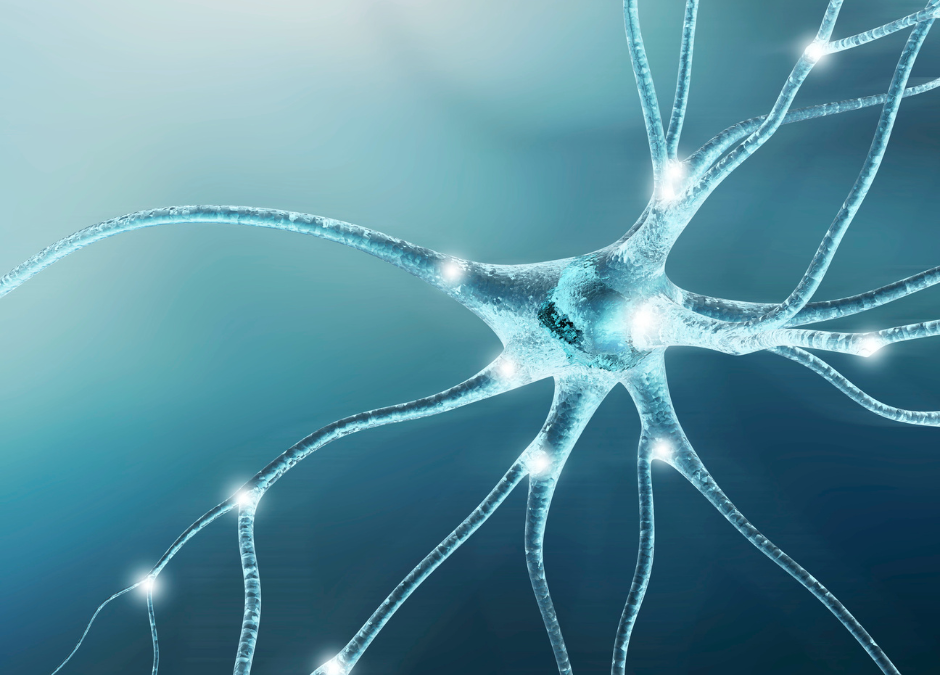The Vagus Nerve, also known as the “wandering nerve,” is a trending topic in the field of health and wellness. This remarkable nerve is the longest cranial nerve in the body, extending from the brainstem to various organs throughout the chest and abdomen. Its influence on our overall health and well-being has gained significant attention in recent years.
In this blog post, we will explore the importance of the Vagus Nerve, how its function can be measured through Heart Rate Variability (HRV), and the symptoms of vagus nerve dysfunction. We will also dive into methods to assess vagus nerve function at home and how chiropractic care can play a role in optimizing its performance.
The Vagus Nerve: Understanding the Missing Link to Health
The Vagus Nerve plays a pivotal role in the autonomic nervous system, which controls various involuntary bodily functions, such as heart rate, digestion, and respiratory rate. It consists of both sensory and motor fibers, making it a crucial communication pathway between the brain and the organs.
Research suggests that a healthy Vagus Nerve is associated with improved mental health, reduced inflammation, better digestion, and enhanced cardiovascular function. In contrast, vagus nerve dysfunction may lead to a wide range of health issues.
Heart Rate Variability
One way to assess the function of the Vagus Nerve is through Heart Rate Variability (HRV) analysis. HRV is the variation in time between successive heartbeats, and a higher HRV indicates a well-functioning Vagus Nerve. This non-invasive and straightforward method has gained popularity as a tool for measuring autonomic nervous system health.
Studies have shown that individuals with higher HRV are more resilient to stress, experience better overall health, and are less susceptible to certain chronic diseases. Understanding HRV can offer valuable insights into how well your Vagus Nerve is performing.
Symptoms of Vagus Nerve Dysfunction: Signs of an Imbalance
When the Vagus Nerve becomes imbalanced or dysfunctional, it can manifest in various symptoms that affect both physical and mental health. Some common signs of vagus nerve dysfunction include:
- Dizziness: An imbalanced Vagus Nerve may lead to feelings of dizziness or lightheadedness, which can impact daily activities and overall well-being.
- Extreme Fatigue: Chronic fatigue that persists despite adequate rest could be an indication of vagus nerve dysfunction affecting energy regulation.
- Difficulty Concentrating: A poorly functioning Vagus Nerve might contribute to brain fog and difficulty maintaining focus and concentration.
- Restlessness: An imbalance in the autonomic nervous system can lead to an inability to stay still or relax, even during periods of rest.
- Chronic Inflammation: An impaired Vagus Nerve may fail to adequately regulate the immune system, leading to an overactive inflammatory response.
Stimulating Vagus Nerve Function at Home
While HRV analysis is often conducted in clinical settings, there are simple and accessible ways to assess your Vagus Nerve function at home. Here are some practices to try:
- Deep Breathing: Engage in slow, deep breathing exercises to activate the parasympathetic nervous system (the “rest and digest” response), which is primarily regulated by the Vagus Nerve.
- Meditation: Regular meditation can have a positive impact on Vagus Nerve function, promoting relaxation and stress reduction.
- Humming: Humming activates the muscles in the back of the throat, which are connected to the vagus nerve. This gentle stimulation of the nerve can help promote relaxation and reduce stress. Try humming a soothing tune or simply making “mmm” sounds to experience the benefits.
- Cold Exposure: Cold showers or splashing cold water on your face can trigger the “diving reflex,” activating the Vagus Nerve.
- Eyes Side to Side: Moving your eyes from side to side in a slow and controlled manner can activate the vagus nerve. This movement stimulates the ocular muscles, which are linked to the nerve, promoting a relaxation response. It’s a simple and quick way to support vagus nerve function.
- 478 Breathing Technique: The 478 breathing technique involves inhaling deeply through the nose for a count of four, holding the breath for a count of seven, and then exhaling through the mouth for a count of eight. This breathing pattern stimulates the vagus nerve and triggers the body’s relaxation response, helping to reduce stress and anxiety.
By incorporating these practices into your daily routine, you can enhance vagus nerve support and experience the numerous benefits associated with a well-functioning vagus nerve, such as improved digestion, reduced inflammation, and increased overall well-being.
The Role of Chiropractic Care in Enhancing Vagus Nerve Function
Chiropractic care focuses on optimizing the body’s nervous system, including the Vagus Nerve. Chiropractors use various techniques to improve nerve function and restore balance in the autonomic nervous system. Some chiropractic methods that may positively impact the Vagus Nerve include:
- Spinal Adjustments: By aligning the spine and removing interference from nerve pathways, chiropractic adjustments can promote better Vagus Nerve function.
- Cranial Sacral Therapy: This gentle technique can help release tension in the cranial nerves, including the Vagus Nerve, allowing for better communication between the brain and body.
- Stress Reduction: Chiropractic care often incorporates lifestyle counseling and stress reduction techniques, which can benefit the Vagus Nerve and overall nervous system health.
The Vagus Nerve is indeed the missing link to our health and well-being, influencing various bodily functions and playing a crucial role in our overall vitality. Understanding the importance of Vagus Nerve function, how to measure it through HRV, recognizing symptoms of dysfunction, and adopting simple practices to assess it at home can empower us to take charge of our health.
Remember, a healthy Vagus Nerve contributes to a happier and healthier life, so let’s embrace the opportunity to enhance our well-being through better understanding and care for this remarkable nerve.

